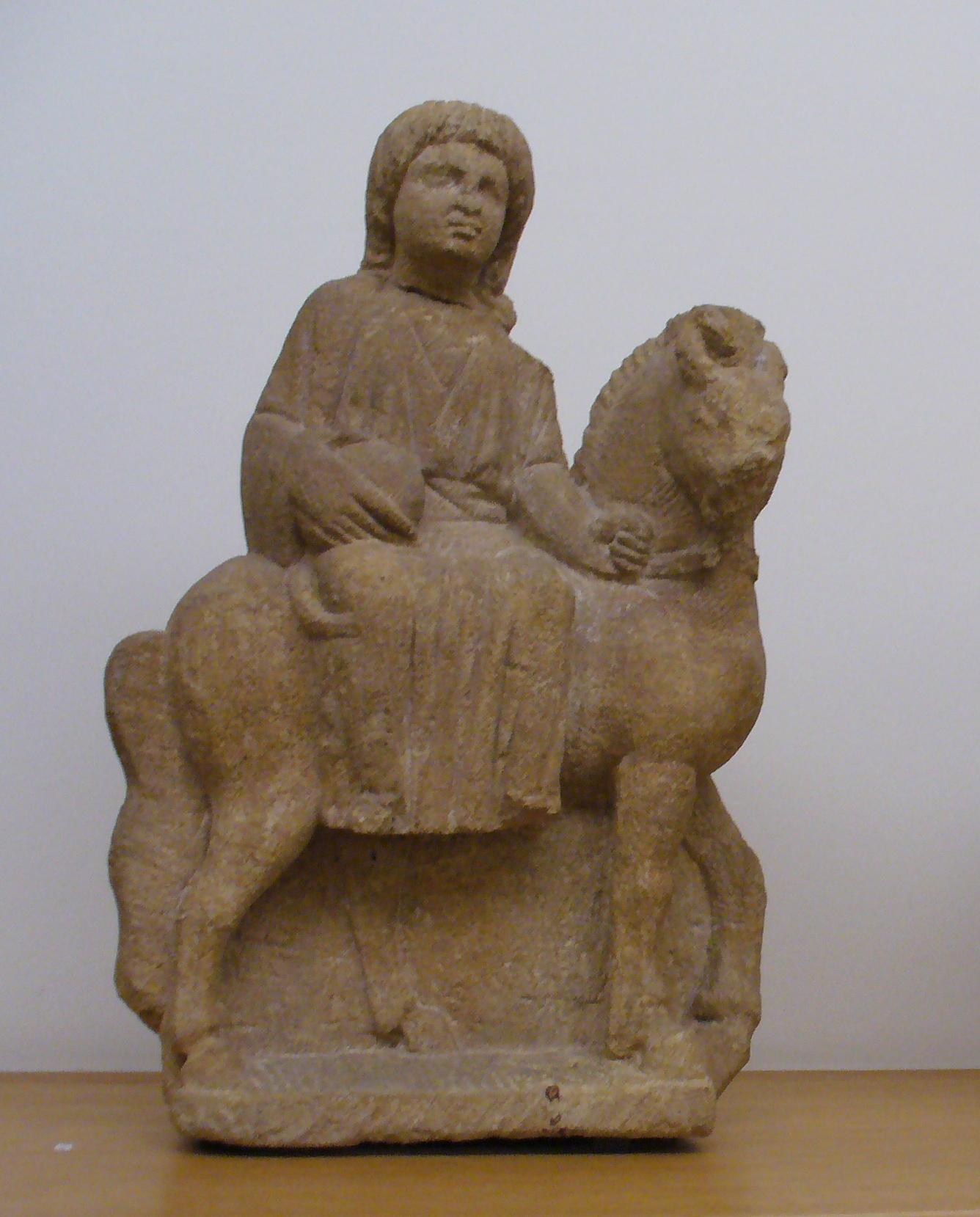This Article is about the Gaulish Horse Goddess Epona, written for the Centre For Pagan Studies by Elaine Hindle
The name Epona comes from Iron Age Gaulish.
The word Epos means horse in Gaulish and derives
from a proto-Indo- European root
Gaulish: “os’ is
the male ending and ‘a’ being the female
ending.
Personal names containing the word horse
examples: Epacus, Epasius, Eppia
Tribal names also such the Scottish tribe the
Epidii.

The name Epona means, “
divine mare” or “she who is like a
mare”.
Epona was worshipped in Western Europe.
She was the only Goddess to be adopted by the
Roman military.
Dedications to her were found on both the
Antonine and Hadrian’s walls.
Although her name is Gaulish, no inscriptions
have been found in Gaulish but only in Latin or Greek.
It is likely that the Emperor’s Horse guards may have been the main unit
to spread the Epona dedications throughout the Roman Empire.
Flanked
by two horses, Epona is shown sitting on a throne holding a fruit basket on her
lap.
But it is unclear whether the same applied regarding the
spread of non-military artefacts e.g. sidesaddle Epona.
Depictions of Epona are mainly on bas-relief
clay, some bronze and one wood.
Sidesaddle

The main depiction is of her sitting sideways on
a horse, wearing a long dress, gathered under the bust and sometimes a cloak
around her head. The horse or mare is usually walking to the right, or standing
still. There may be reins. The goddess usually has her hand on the mane, neck
or head, or sometimes carries a cornucopia. The other hand holds a patera (serving
dish) or basket of fruit.
Sometimes there may also be a foal.
Imperial
This depiction shows Epona either seated or standing facing forward, with two or four horses on either side of her, eating wheat or apples from her lap. This imperial type was more common outside Gaul.
_(7957495588).jpg)
Cart
Much less common is Epona depicted riding a cart driven by horses or mules; one such has seven horses pulling the cart. Epona was a protector of horses and was worshipped primarily by those whose work involved horses i.e. the cavalry, dispatch riders, scouts, mule drivers, carters, stable hands and grooms. She was worshipped in temples by the Romans by praying, making vows, erecting altars, sacrificing animals, incense and wine. Pipe clay figures of her were also found in the home. She was also worshipped in the stables and altars and paintings have been found which were decorated with roses. She protected the horses and asses.
The origins of Epona before the Roman Empire are not well know, she may have been a native Gaulish Goddess, or a fusion Goddess created of Gaulish, Germanic and Danubian peoples when they formed the Roman Cavalry or perhaps she came from much older deities.
Update: for the invocation to Goddess Epona please visit this page http://centre-for-pagan-studies.com/2020/12/16/prayer-to-epona-december-18-2020/
Stay in touch by subscribing to our newsletter (Your privacy is our concern)